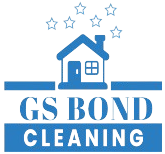8 Bad Cleaning Habits You Should Identify: Know Why To Break Them
Cleaning with ineffective techniques and practices harms your home’s hygiene. Bacteria, viruses, and other pathogens that cause illness can multiply rapidly in an unsanitary environment.
Because viruses and bacteria can survive on soft/porous surfaces for 24 hours and hard surfaces for up to 72 hours, you should clean and disinfect your household surfaces daily. If a dangerous pathogen is present in your home’s indoor air or on its surfaces, you and your family could become ill.
Suppose you need more time or energy to sanitise your home regularly, hire professionals like GS Bond Cleaning Sydney. When you are ending a tenancy and need to get your bond back in total, seek the help of bond cleaners in Sydney.
However, to maintain household hygiene, you can stick to identifying bad cleaning habits that need to be broken.
Backtracking While Cleaning
Backtracking due to a lack of planning is one of the beginner errors you make when cleaning. To prevent reinfection previously cleaned areas, professional Bond Cleaning Sydney undertaking house cleaning always move top to bottom or right to left in a circle.
As a result, when cleaning, you must start at the top to avoid having to go back and redo any surfaces.
Dishes left in the sink overnight that are dirty
Did you realise there are more dangerous bacteria in the kitchen sink than in the bathroom? Things worsen when you leave dirty dishes in the sink overnight because microorganisms that cause sickness can multiply rapidly. Create a routine of loading and unloading the dishwasher each night.
Ignoring The Milky Remains on Surfaces
Most commercial cleansers are alkaline and leave behind a thin film of residues, mainly when used in excess. This coating dulls surfaces, which collects dirt and dust, making surfaces unclean more quickly and requiring more cleaning supplies. It would help if you ended this cycle by utilising pH-neutral cleaners or the proper Bond Cleaning Sydney.
Use of Cleaning Equipment Without Sanitisation
No cleaning instrument has a self-sanitising feature; just giving them a quick rinse with water after each use can result in more severe problems. You can transfer bacteria, fungi, and viruses with contaminated instruments since they typically survive on hard and soft surfaces for days. So, before storing cleaning supplies, wash them in soapy water.
Making Convenient Use of Harsh Cleaners
For sufficient sanitation, the majority of your home’s surfaces and fixtures merely need to be cleaned with soap and water. However, utilising harsh cleaners and tools simply because they are quicker and easier to use is a typical error that most people make. If you are one of them, give up this behaviour before it permanently damages your home’s fixtures and surfaces.
Cleaning Products Used Without Reading Labels
You’re one of many who use cleaners without reading the label’s usage instructions. People with this poor tendency don’t give things the required dwell time. You can only achieve the best results if a product has enough dwell time to break the bindings of stains and spots.
Wiping Disinfectant as Soon as It Is Applied
Even the most potent disinfectants kill bacteria and mould after 5 to 10 minutes. Therefore, most bacteria survive when you wipe them away right away after spraying. So, give the area five minutes to dry after applying a disinfectant. Furthermore, reapply if the solution dries before the dwell period have passed.
Using A Single Cleaning Wipe to Clean Several Places
Cleaning wipes are excellent for use only once to sanitise a small area. You are not eradicating contaminants when you use one wipe to clean the countertops, stove, cabinet doors, or other surfaces.
Final Words…
Reviewing your cleaning habits and eliminating the bad ones is never too late. As a result, if you have any of the 12 lousy cleaning habits, act now to change them. However, if you are ending a tenancy and want the rental property cleaned properly, hire professionals for Bond Cleaning Sydney location.
6 Useful Tips When Vacating Your Rental for Tenants

